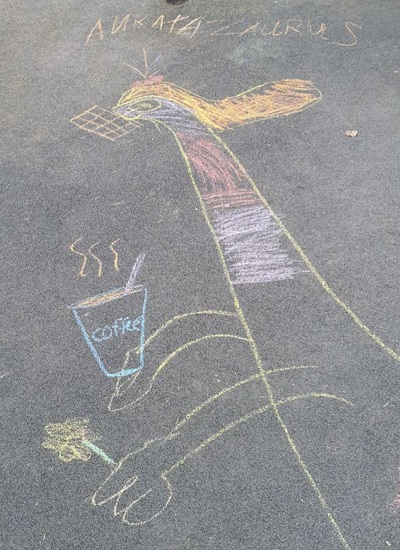
The context at hand
If you have read this (relatively new) series before, you know that this year I am teaching in a slightly different context and that, beginning September, I said goodbye to the traditional EFL curriculum and the CEFR. On some days, it really does make my head spin, for example when I catch myself suddenly in the lesson on the prefixes im- and un- (but we really need ‘It’s impossible!’) or teaching the infinitive of purpose (but, it is a lovely and generative structure and the kids love using it and making silly sentences with it). On some other days, I gasp and I am in awe at my kids producing the language.
This was exactly the case with the Past Simple. I just wanted my kids to have it at their disposal, even if only for understanding. The Past Simple accounts for only (‘only’) 20% of the everyday use but it features heavily in our coursebook and in many of the stories we read or watch and, with time, there will be even more of it. So we started.
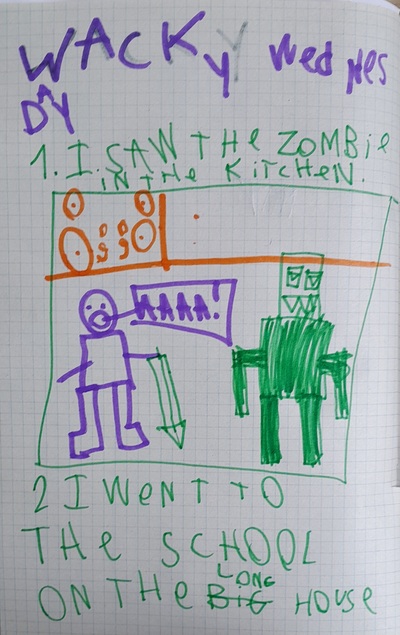
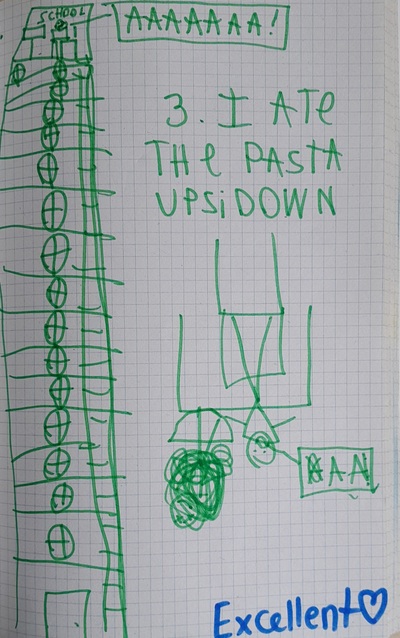
Presentation
First and foremost, I needed a proper context, something that definitely did belong in the past and something that we would want to talk about. My first attempt was the New Year’s break but somehow, when we got back, there was too much to share and too much to focus on. I decided to try again after a random weekend and then reinforced it right after the winter term break.
The presentation was very simple. I chose ten basic and most frequently used verbs, both regular and irregular such as: I went, I ate, I drank, I played, I rode, I listened, I watched, I liked, I played, I got. I prepared a very simple poster, in colour, with the pairs of verbs and we just tried to make some sentences to describe our weekend. The clarification was rididulously basic ‘I drink coffee’ – we do it everyday and ‘I drank coffee yesterday, on Sunday’. I also added an example in Russian, to show that we do the same in their first language, we change the verb form to signal that something has happened. We read the verbs, drilled a little bit and that’s it. I decided not to burden the kids with the differentiation between the regular or irregular verbs.
Since then, during the first lesson of the week, we have started to use these to talk about our Saturday and Sunday as we do until this day. I write a set of verbs on the board, usually up to 7, and everyone has to choose at least 4 to talk about the things they did at the weekend. About two or three weeks ago to all these ‘I went, I ate, I drank, I liked’, I added ‘I didn’t’ to broaden the scope for the kids. This way we get a chance to share the stories of our weekends and in the appropriate verb forms. Some of my students choose only the required four but some start their stories with ‘Can I talk about everything?’ and yes, of course, they can!
It was only this week that we started the topic ‘properly’. I added more verbs to the list and we started practising in a more focused way. See below for the activities that we have done so far.
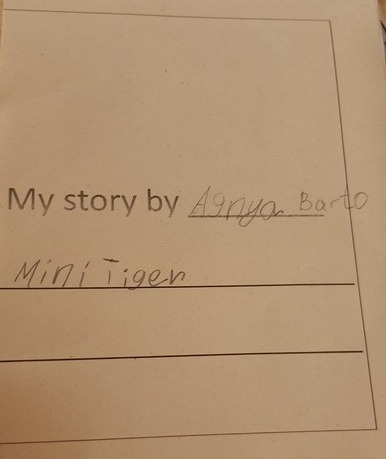
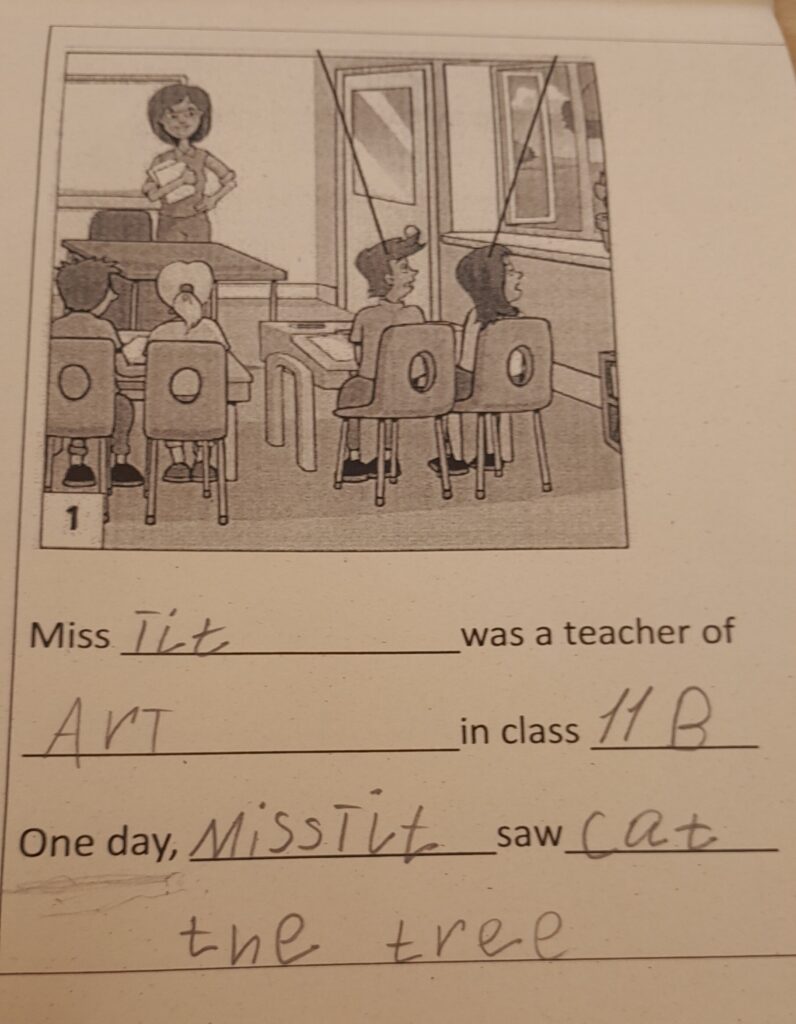
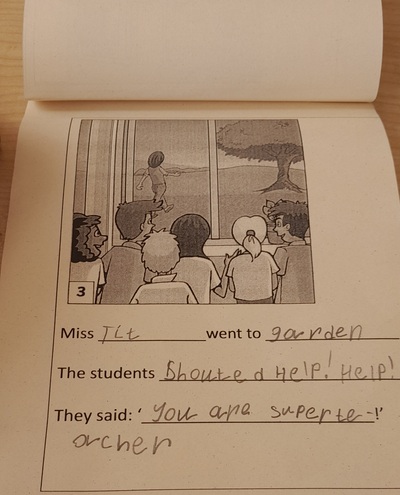
Practice
- Matching the verbs forms using the wordwall game
- Reading the crazy sentences on wordwall. It is fun to give the correct answer but we are also having lots of fun with reading all the incorrect versions, with the easier version (choosing the correct verb) and the more challenging one (choosing between the present simple and past simple).
- Mr Milk and his day. We use Mr Milk and all his friends, Mr Banana, Mr Apple, Miss Umbrella, Mr Juice and many more, to tell simple stories. Children take turns to make simple sentences with the verb forms that I show and this is how we tell the whole story. In the end, we decide if it was a good day or a bad day. I have made cards, double-sided, with the basic form and a symbol to help the kids remember the meaning and the past tense form on the back but the electronic cards can be used, too.
- The idea of Mr Milk was also used in the boardgame that I put together. Every student could talk about Mr Milk or they could choose their own character. We played the game and talked about their days using the verbs on the board.
- Tell me about yesterday, a simple dice game. The kids played in pairs, they had to roll the dice, choose one of the two verbs (I wanted include as many as possible, hence the double set) and make a sentence, crazy or not crazy, and address their partner, for example ‘I ate a pizza. And you?’ and compare their days this way, If there is time, the kids can change partners once or twice and to continue the game.
- A song ‘Oh what a week‘, from Superminds / Quickminds 3 by CUP. We looked at the pictures and described the actions, we listend to the song for fun and afterwards, we listen again to number the pictures and we found all the past verb forms in the lyrics, to practise reading and to facilitate the singing / reading in the future. We have been singing the song since and, in a few days, we will also write our own version.
- Storytelling #1, based on the Flyers materials. I have used the Charlie story before and I have written about it here but this time Charlie was just a warmer for us. I pointed at the pictures on the screen and gave the kids sentence starters with the verbs for them to complete.
- Storytelling #2, based on another set of Flyers materials. We looked at the pictures and prepared a list of words that we can see in the pictures. Kids were brainstoriming the ideas and I was writing them down on the board, in groups: people, places, emotions, objects and actions. Every word got its own number for the future reference. When kids need a word and ask for it, for example ‘Miss Anka, where is ‘students’?’, I can simply reply ‘It’s number 4’ and everything gets much easier. I printed the materials (see above), cut them up, stapled them together in booklets and gave them out, one per student. They we got down to writing our own versions of the story.
- Storytelling #3 and the amazing Wacky Wednesday by Dr Seuss. It was a perfect choice for our classes because it includes some past tense, my kids love the idea of ‘wacky’ (or ‘crazy’) days, stories and ideas and we could actually do it on a Thursday which was a nice coincidence. We read the story because we have it in our library, I was reading and the kids were pointing at the wacky things in the pictures and we also tried to talk about these. The story is available also in a video format. In the end, we made notes in our notebooks about own own Wacky Wednesdays, writing only about three things: I saw, I went to, I ate.
- What did you do at the weekend? This is how we start our everyday Monday lessons. I write on the board a few verbs in the past tense (I went to, I ate, I drank, I bought, I played, I saw, I rode, I watched, I made, I didn’t) and each child has to choose four things to tell us about their weekend, at least 4. We also added ‘Me, too!’ to react to whatever the kids are retelling and to involve the rest of the class. Our most recent addition is one question. I initially planned it as my question to the person who is talking but the kids suggested taking it further so right now I ask one question to the speaker AND the speaker asks me one question, too.
Happy teaching!
P.S. A request!
It is very simple.
I would like to know a tiny little bit more about my readers. There are so many of you, popping in here, again and again, and the numbers of visitors and visits are going up and make my heart sweel with joy. But I realised I don’t know anything about my readers and I would love to know, a tiny little bit more.
Hence the survey.